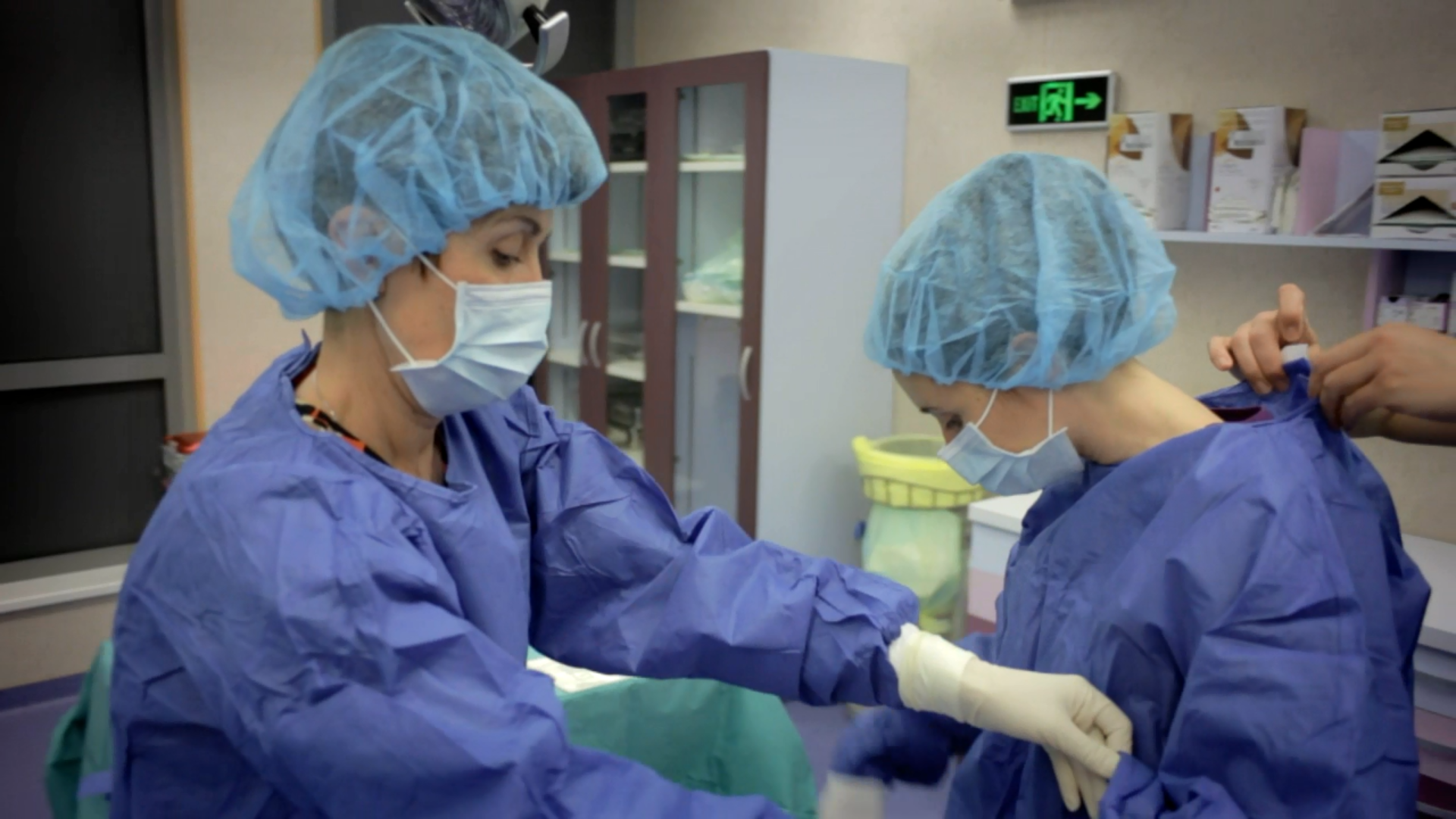Laparoscopy
What is Laparoscopy?
The term Laparoscopy comes from the two ancient Greek words lapara (abdomen) and scopeo (to be seen), which means a view of the organs in the abdomen cavity. It is introduced in the clinical practice in the second half of the 20 century.
Laparoscopy is a minimally invasive surgery, including a view of the organs in the pelvis and abdomen through a laparoscope. A laparoscope is a small tool combining optical system and a lumen which pass through a small incision in the navel area. Laparoscopy is at the same diagnostic and therapeutic method, which allows a variety of gynecological surgeries to be performed this way.
With the development of modern technologies, the application of laparoscopy in all gynecological spheres is comprehensive, because the trained specialist can perform almost every gynecological surgery through it. For patients with reproductive problems, laparoscopy is the golden standard for surgical treatment. In addition to the fast recovery, the laparoscopy gives them the chance to start procedures for conceiving a month after the procedure. At the same time, this technique reduces the adhesions in the abdomen cavity significantly, which usually accompany the traditional open surgery.
How do we perform laparoscopy?
We perform laparoscopic surgery under full anesthesia through the abdomen wall. Through 5-10 mm cuts in the navel area, the surgeon inserts an optical system and look over the organs in the cavity. The surgical instruments are inserted through cuts in the lower part of the abdomen.
The laparoscopy operation starts with a look over the uterus, ovaries and the fallopian tubes, which allows an accurate assessment of the pathological changes. The surgeon who proceeds the laparoscopy can make surgical correction of all the organs in the pelvis which need operation treatment, like uterus, fallopian tubes, ovaries. During the operation, the team monitors its action on a screen, and the procedure could be filmed in a digital format.
When is diagnostic laparoscopy advisable?
- infertility which is not elucidated with other diagnostic tools
- for establishing the passability of the fallopian tubes laparoscopy is an exact method
- diagnosis of adhesions, cysts, endometriosis, ectopic pregnancy, leiomyomas, structural abnormalities
When is laparoscopy treatment advisable?
- fallopian tubes disorders, like pelvic inflammatory disease, endometriosis, adhesions, ectopic pregnancy
- ovarian disorders - cysts, polycystic ovary syndrome
- uterine conditions - fibroid outside of the uterus, some congenital abnormalities of the uterus
- hysterectomy (surgical removal of the uterus), correction of the uterus position
What are the advantages of laparoscopy according to the open surgery?
- faster patient’s recovery
- minimal hospital stay
- minimal blood loss
- minimal surgical traumas
- lower frequency of post-surgical inflammatories
What is the minimum hospital stay?
Two days
What are the contraindications for laparoscopy treatment?
- higher anesthesiological risk
- mechanical and paralytic ileus
- diffuse peritonitis
- hemorrhagic diathesis
What is the recovery period?
After the surgery, the patient may feel some discomfort, including:
- slight nausea resulting from the medications or the procedure
- pain in the neck or the shoulder caused by the gas in the abdominal cavity
- pain in the areas of the abdominal wall, where was the instrumental penetration
- irritated throat or hoarse voice if during the full anesthesia the patient was intubated
- spasms similar to menstrual
- bleeding like menstrual for a couple of days
- muscle pain
Schedule your gynecological prevention now
Call +359 2 920 0901 and book your medical appointment for gynecological prevention or with a reproductive specialist. Use the other ways to contact Dr. Shterev Hospital - our online booking form, the Viber channel or Facebook Messenger. Follow the instructions and meet your trusted medical specialist.
 Медицински комплекс „Д-р Щерев”
Медицински комплекс „Д-р Щерев” 